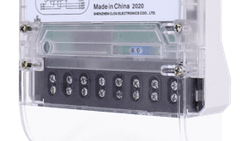DLMS (Device Language Message Specification) is a communication protocol widely used in the field of smart metering and energy management systems. As the adoption of these systems increases, the need for strong security measures becomes paramount. This article explores the basics of DLMS security, aiming to provide an overview of the key concepts and techniques that ensure the confidentiality, integrity, and availability of DLMS communications.
Understanding DLMS Security
DLMS security encompasses various mechanisms designed to protect the data exchanged between DLMS devices, including smart meters and data concentrators. These mechanisms ensure that only authorized entities can access and modify data, preventing unauthorized access and tampering.
Authentication and Authorization
Authentication is a fundamental security concept that verifies the identity of the communicating parties. For DLMS communications, authentication is typically achieved using various cryptographic techniques, such as digital signatures and shared secrets. By verifying the authenticity of the devices involved, the system can ensure that only authorized devices can participate in the communication process.
Authorization complements authentication by determining the level of access and permissions granted to the authenticated devices. It enables the system to define fine-grained access control policies, ensuring that each device can only perform the appropriate operations based on its role and privileges.
Encryption
Encryption is crucial to ensure the confidentiality of DLMS communications. It protects sensitive data by converting it into an unreadable form, which can only be decrypted by authorized recipients possessing the necessary cryptographic keys. Through encryption, DLMS messages become resistant to eavesdropping and unauthorized data retrieval.
DLMS supports various encryption algorithms, including symmetric and asymmetric encryption techniques. The choice of encryption algorithm depends on factors such as the desired level of security and the available processing power of the devices involved.

(symbol image, credit CLOU)
Message Integrity
Ensuring the integrity of DLMS messages is essential to prevent unauthorized modification or tampering. Message integrity techniques, such as cryptographic hashing algorithms and message authentication codes (MACs), verify that the received message has not been altered during transmission.
By comparing the computed checksum or MAC with the received message's checksum or MAC, the recipient can verify the message's integrity. Any change in the message contents will result in a mismatch, indicating possible tampering.
Key Management
Key management is a critical aspect of DLMS security. It involves the secure generation, distribution, storage, and lifecycle management of cryptographic keys used for authentication, encryption, and message integrity.
Secure key provisioning mechanisms, such as key exchange protocols and secure storage methods, ensure that the cryptographic keys remain protected from unauthorized access and compromise. Regular key updates and secure key revocation processes are essential to maintain the security of DLMS communications over time.
Takeaway
DLMS security is of utmost importance in the context of smart metering and energy management systems. By employing authentication, authorization, encryption, message integrity, and robust key management techniques, the communication between DLMS devices can be secured from unauthorized access and tampering.
It is crucial to stay up-to-date with the latest security practices and standards to ensure the continued protection of DLMS communications. Experience the comprehensive AMI system solutions by CLOU, designed to secure data transmission in DLMS/COSEM-based smart metering networks. Connect with our team of specialists for any inquiries you have.
References
DLMS User Association, Green Book
DLMS User Association, Blue Book
International Electrotechnical Commission, IEC 62056 series
Editor's note: This article was originally published in August 2023 and has been updated for comprehensiveness.





All comments are moderated before being published. Inappropriate or off-topic comments may not be approved.